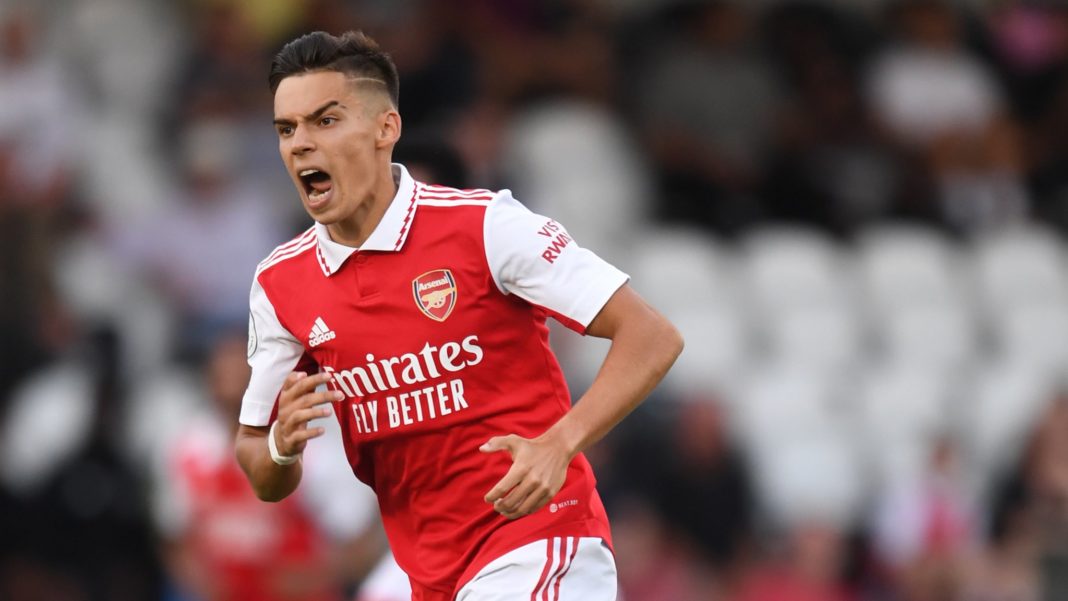Arsenal’s talented youngster Cătălin Cîrjan finds himself in conflict with the Romanian Football Federation. We take a closer look at the situation.
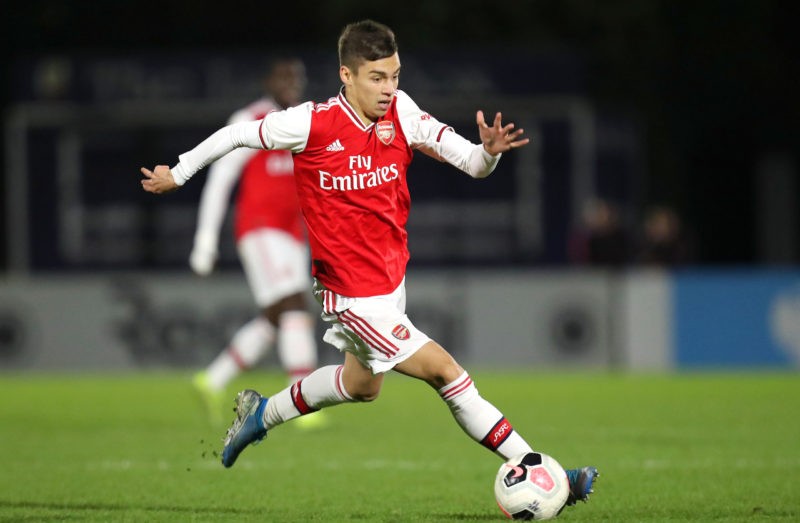
The root of the conflict
The conflict between promising Arsenal player Cătălin Cîrjan and the Romanian Football Federation (FRF) has been making headlines in his homeland recently.
The young midfielder, who has been performing admirably for Arsenal’s U23 team, has faced challenges with the national team selection process, leaving both the player and the federation disappointed.
Cîrjan’s disappointment with FRF treatment
Cătălin Cîrjan has claimed that he has been treated unfairly by the FRF, accusing Mihai Stoichiță, the technical director, of intervening in the junior national teams’ selections.
The 20-year-old has made just one appearance for Romania’s U16s, which came in 2018.
He has not played for his country since at any level.
While Stoichiță denies these accusations, Cîrjan’s grievances, of which there are many, highlight a need for transparency and fairness in the selection process for national teams.
What did Cîrjan say?
After being called up for the u21s, Cîrjan was dropped down to the u20s and he has not held back about anything. This is long, but worth it.
“I feel unwanted at the national team,” Cîrjan said.
“I have no longer kept in touch with Emil Săndoi. Pancú didn’t even call me.
“I argued to Mr. Sandoi why it is not right to proceed like this. Mr. Sandoi told me that he will consult with your collaborators and that they will make a decision. “We keep in touch” were his last words. I didn’t keep any contact, then I found out that I was not included in any group.
“No U20 call-up was received at Arsenal. I have never spoken to Mr. Pancu in my life, that’s why I was disappointed when he said that he found out from Emil Săndoi that I didn’t want to come”, Cîrjan said in an extensive interview for PlaySport .
“Per Mertesacker told me that I did the right thing to tell them that it was not suitable for me to go to the U20 and he told me that he couldn’t believe the amateurism in FRF’s behaviour.”
Relaying a story of a time he was left feeling ‘humiliated’, he added, “At one point, Mr. Geolgău came to me and said: “Ooo, what are you doing, child? I’m glad to see you!”
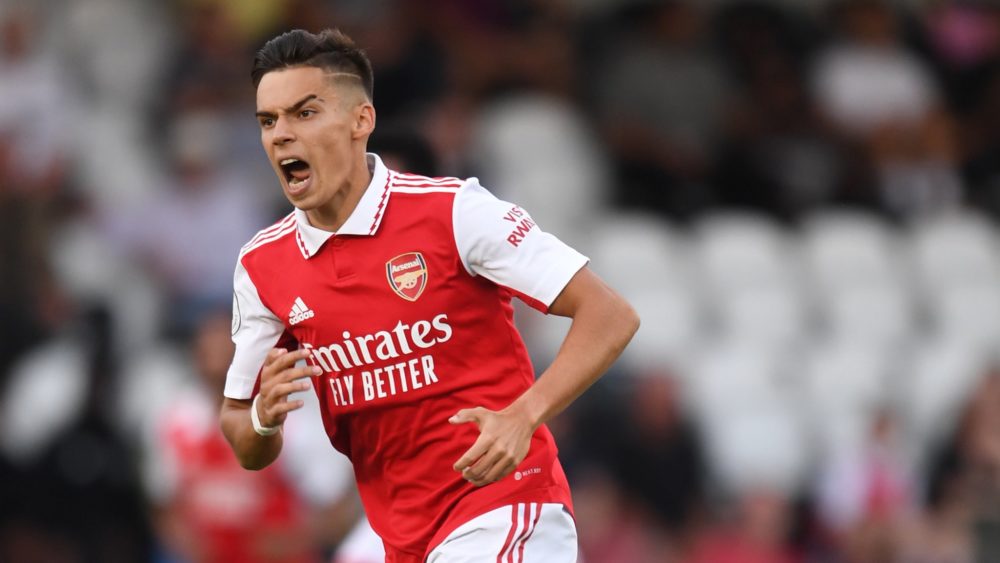
“At first I was surprised, I knew he was talking bad about me and my brother, Daniel. When he approached me, he realised that he had confused me and said: “I didn’t want to greet you.”
“He turned his back on me and left me with my hand outstretched.
“There is discrimination in the groups, some are taken by the head and kept in the fluff, while others are clearly shown that they are not wanted there.
“Mr. Iordănescu said recently that he loves the talent of the Romanian players, but that he hates their mentality.
“We should also look a little at those who are put there to create the framework for the development of the mentality.
“I have known Mr. Stoichiță since I was 14 years old, from the first action I had at Piatra Neamț, when the U15 team was formed.
“I was a kid, but I was playing and scoring in League 3.
“From the age of 10 I played in the senior team. I was praised daily by the coaches of the national team, but on the day of the first match against Moldova I was told that I was not physically fit and that I was a reserve.
“At 1-0 for Moldova, I was put on the field in the last 10 minutes and I scored. After the second game, Mr. Stoichiță served the table with the parents of two players who had started in both games.
“He left with them in the car to Bucharest.
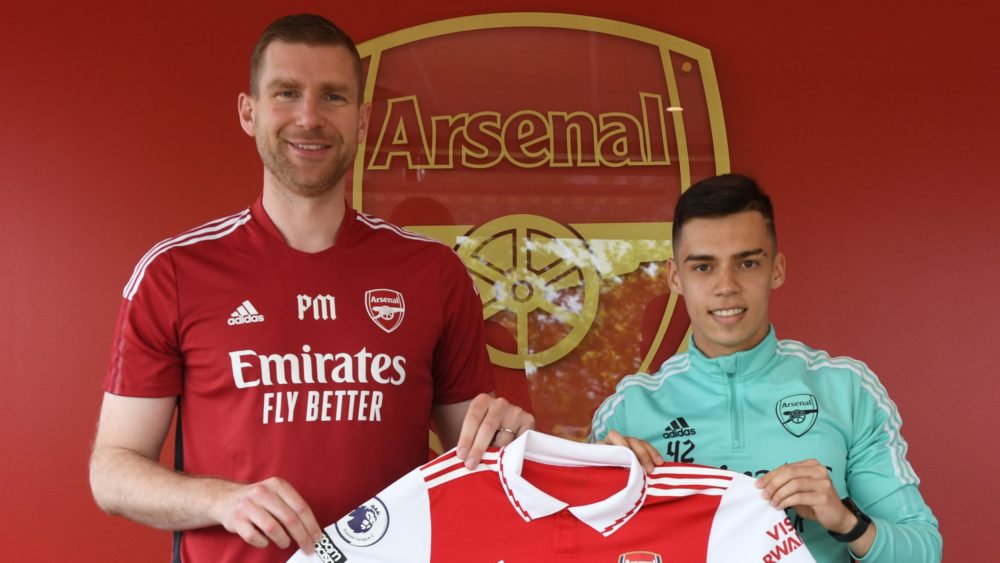
“Then, at 16, in a brace against Italy, I was among the few unused substitutes in the first game. I had been training really well, having just returned from an internship with Arsenal.
“I remember that the people there had praised me and told my father and agent that I was top class. In the second match against Italy I started. During the warm-up, the only name heard was Cîrjan.
“As I was scolded by Mr. Mogoșanu, who was a selector, I was never scolded by anyone.
“All kinds of invented reasons, that I don’t fit well, that I shouldn’t have passed to one side, but to another.
“I repeat, this was during the warm-up. I understood now that all that circus was done with dedication, I am no longer a child.
“They wanted to take away my confidence and make me not focus.
“I was changed in the second half, I almost didn’t touch the ball because it was only played long at the request of the coaches.
“The changes were not made by the coach, but by Mr. Stoichiță.
“Mr. Stoichiță was sending one of his men to convey the changes to the trainers, my father, who was nearby, saw him. Other people who were there can confirm.
“At the end of the match, Mr. Stoichiță turned to dad and motioned for him to zip his mouth, as if I was a weak footballer who had nothing to comment on.
“He also said that I didn’t come to the matches with Argeș and Steaua to play for U23 in Dubai.
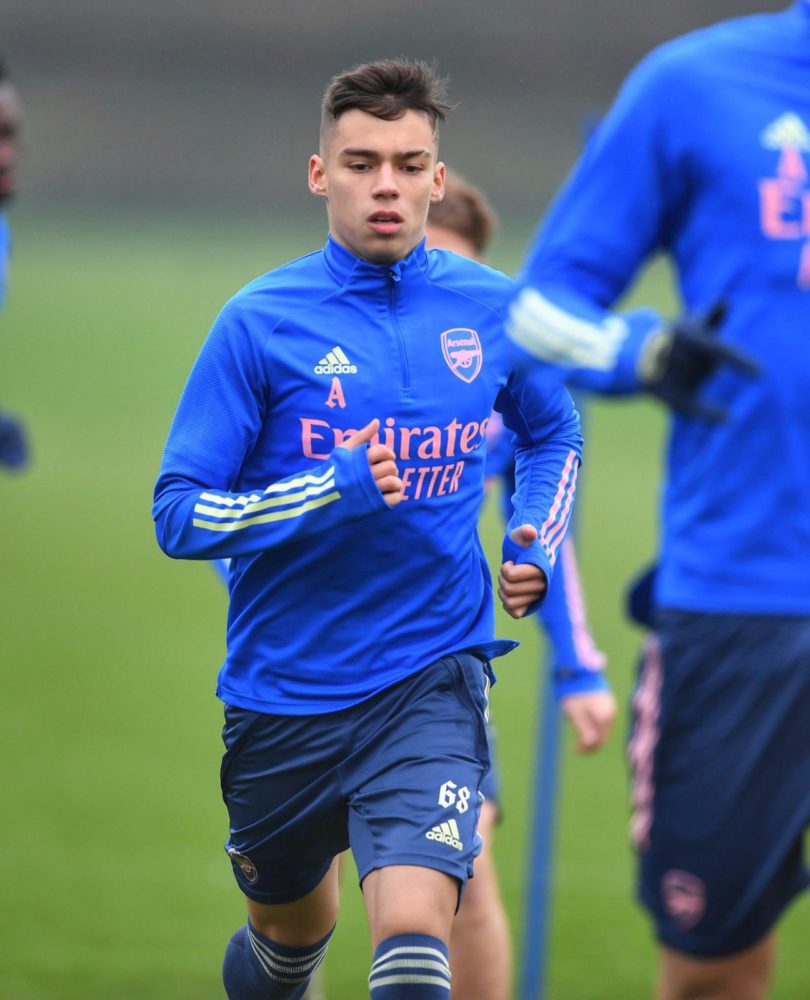
“If you believe that Odegaard, Gabriel, Nketiah, Lacazette, Dembele, Tonali, Tătărușanu, Rebic or Origi are U23 level players, I am proud to have been with them.
“I feel unwanted. Only the fact that it says “Arsenal” on my shirt makes them pay attention to me. I know what I’m saying, I’m basing it on many things that happened that make me and my family understand that it wasn’t just coincidence.
“I haven’t been called up to the U21 team because it’s the last matches before the Euros and they don’t want me to be there.
“I’m sure they were afraid that if I came now and proved my worth, they might get in trouble with people the moment I wasn’t in the final group.
“So, they thought of sending me to U20, where we know what the results were. They wanted to compromise me, to say afterwards: “Cîrjan from Arsenal… There is nothing wrong with him since the national team is losing in such a manner with him on the pitch.
“Unfortunately, what many people don’t know is that Romania’s national team is no longer Romania’s. It’s the national team of various interests, and I’m not there because I don’t represent those interests.
“If I ever play for Romania, I will do it with responsibility for my country. I am not coming for Mr. Stoichiță or Săndoi or for anyone else, I am coming for my country.
“I will never refuse the Romanian national team, no matter how hard some try to leave that impression.”
Invitations and refusals
In response to the accusations, Stoichiță stated that Cîrjan had received multiple invitations to play for the national teams but had refused them, opting to stay with Arsenal instead.
However, it’s worth considering the potential reasons for Cîrjan’s decisions, which may stem from a lack of trust in the FRF or concerns about the impact on his club career.
Stoichiță also denies making any changes in youth national teams since joining the Federation.
He admitted that he occasionally discusses and shares opinions with selectors, but doesn’t dictate decisions.
Although rumours clearly exist about his alleged intervention, Stoichiță dismissed them and said he values Răzvan Burleanu’s [RFF President] trust in him.
“Cătălin Cîrjan received many invitations for the national teams and refused them,” Stoichiță said.
“Last year he was called for two friendlies, with Steaua and FC Argeș, which took place on November 17 and 21.
“He said he would prefer to stay at Arsenal for two games against Lyon and Milan, which were more important, only those games were on December 8th and December 13th!
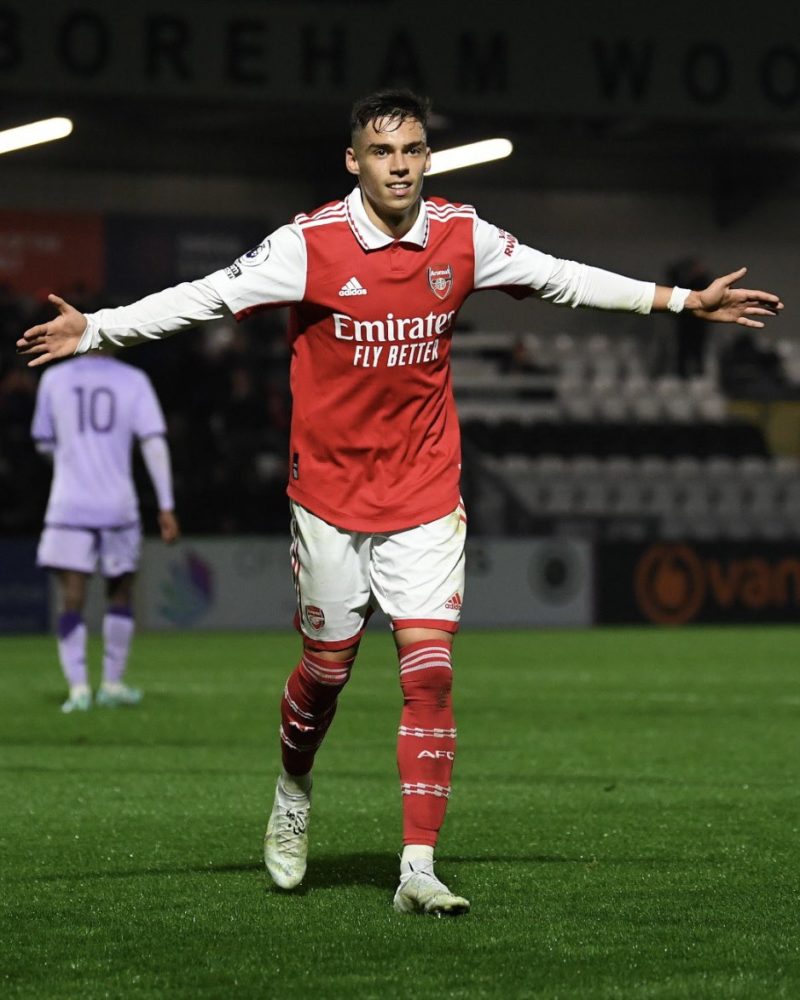
“You mean he didn’t come to the national team because he was going to have two games at the club in two weeks?! What do you mean by this?
“I prefer not to interpret, but I gave you the exact data.
“Do you know that Sandoi was with him in London? Emil, Marius Niculae and Vlad Munteanu were in England for Cârjan.
“If we weren’t interested in Cârjan, would we have sent three crazy people after him?
“Sandoi watched half of one of his training sessions, then went to Port Vale to watch Dennis Politic, then watched Cătălin in an Arsenal U23 match.
“Munteanu and Niculae were also there, two former great footballers, to be evaluated by three people, not just one! Niculae is responsible for me with the under-21 national team.
“I haven’t made any changes in any national team since I’ve been in the Federation! And I don’t even make the call-up lists, I just sometimes have discussions with the selectors and I can have opinions, that’s all, which seems natural to me.
“He was a very talented kid who ended up in England, where he also had some very serious injuries, then came back and plays for Arsenal’s U23s, not at senior level. The doors of the national teams are not closed to him, he can still be called up, in my opinion. I don’t know which national team, it depends on the selectors.”
When asked about Cîrjan finding it ‘insulting’ to be called up to the u20 and not u21, Stoichiță said, “But he is eligible U20! And he was called to that national team to see Pancu, why was it something degrading?”
A sympathetic view of Cîrjan’s Situation
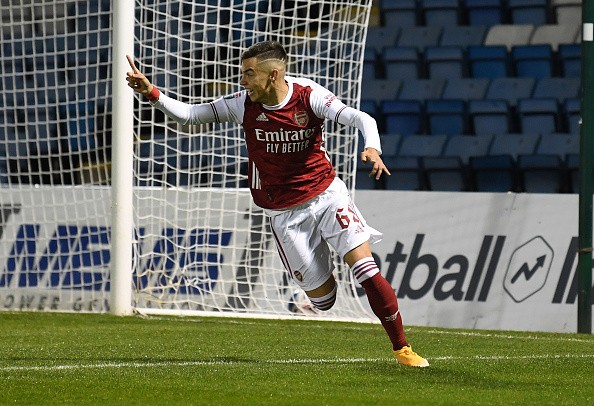
From Cîrjan’s perspective, it is crucial to prioritise his development and ensure that he receives the best possible opportunities to grow as a player.
As a talented young footballer, Cîrjan may feel that focusing on his club career at Arsenal, where he has access to world-class facilities, coaching, and teammates, is the best path forward.
Additionally, concerns about potential unfair practices within the FRF could contribute to his hesitance to join the national team.
The path forward
Despite the ongoing conflict, both Cîrjan and the FRF have expressed a willingness to work together in the future.
Stoichiță has stated that the doors of the national teams are not closed for Cîrjan, and his future call-ups will depend on the selectors.
A chance for reconciliation
This situation presents an opportunity for the FRF and Cătălin Cîrjan to address their issues and work towards a mutually beneficial resolution.
A transparent and fair selection process is essential for nurturing talented players like Cîrjan and ensuring that they can represent their country with pride.
By fostering an environment of trust and cooperation, both the FRF and Cîrjan can work together to achieve success on the international stage.

